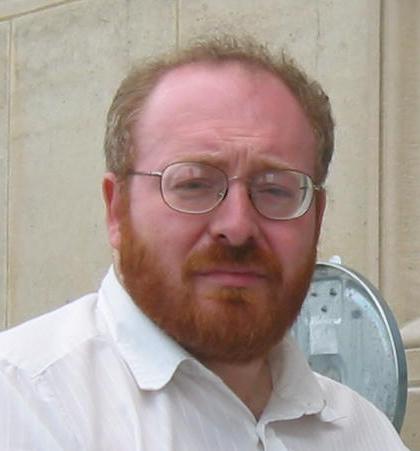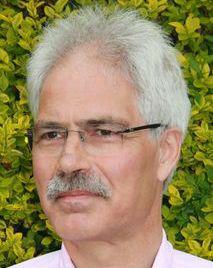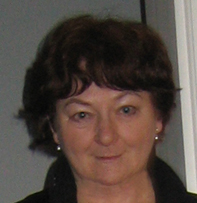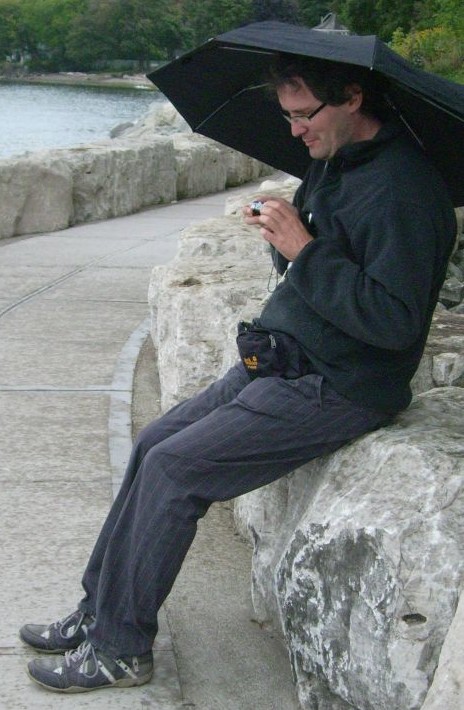 Boris Veytsman
Boris VeytsmanFrom Barbara Beeton for the TUG election committee:
Nominations for TUG President and the Board of Directors in 2021 have been received and validated. Because there is a single nomination for the office of President and because there are not more nominations for the Board of Directors than there are open seats, there is no requirement for a ballot this election.
For President, Boris Veytsman was nominated. As there were no other nominees, he is duly elected and will serve for a two-year term.
For the Board of Directors, the following individuals were nominated: Karl Berry, Johannes Braams, Kaja Christiansen, Klaus Höppner, Frank Mittelbach, Ross Moore, Arthur Rosendahl. As there were not more nominations than open positions, all the nominees are duly elected to a four-year term. Thanks to all for their willingness to serve.
New terms for President and members of the Board of Directors will begin with the Annual Meeting. Congratulations to all.
Taco Hoekwater, Will Robertson, and Herbert Voß have chosen to step down at the end of this term. All have been TUG board members for many years, and their dedication and service to the organization and community at large are gratefully acknowledged.
The notice for this election, the roster of current and past board members, and announcements and information about previous elections are available: 2019, 2017, 2015, 2013, 2011, 2009, 2007, 2005, 2003, 2001, 1999, 1997.
The following candidates' statements were received for the present election, and will be printed in the next regular issue of TUGboat.
 Boris Veytsman
Boris Veytsman(Candidate for TUG President.)
I was born in 1964 in Odessa, Ukraine and have a degree in Theoretical Physics. I am a Principal Research Scientist with Chan Zuckerberg Initiative and an adjunct professor at George Mason University. I also do TeX consulting for a number of customers from publishers to universities to government agencies to non-profits. My current CV is available at http://borisv.lk.net/cv/cv.html.
I have been using TeX since 1994 and have been a TeX consultant since 2005. I have published a number of packages on CTAN and papers in TUGboat. I have been a Board member since 2010, Vice-President since 2016, and President since 2017. I am an Associate Editor of TUGboat and support http://www.tug.org/books/.
I consider my main goal as TUG President to keep TUG and TeX relevant in the changing world of typesetting. We are transitioning from the “user group” model: a mutual help association of users of an arcane software—to the model of a tech society entrusted with the support, advocacy and preservation of an important piece of publishing and communication infrastructure. The Board is working on this, and I try to help in the effort. We coordinate the work of developers and support important forums for developers and users: TUGboat and conferences. Our flagship publication, TUGboat, is now assigning DOIs to its papers, and TUG is a member of Crossref. We joined Open Software Initiative as an affiliated member. I have spent some effort in increasing TUG presence in social media. We started to apply for grants and received the first one for the accessibility initiative.
I am honored by the trust of TeX community and hope it allows me to continue this work.
 Karl Berry
Karl Berry(Candidate for TUG board of directors.)
TeX biography: I served as TUG president from 2003-2011 and was a board member both before and after being president. I am running again for a position on the board.
I'm one of the primary system administrators and webmasters for the TUG servers, and the production manager for our journal TUGboat. I co-sponsored the creation of the TeX Development Fund in 2002.
On the development side, I'm currently the editor of TeX Live, the largest free software TeX distribution, and thus coordinate with many other TeX projects around the world, such as CTAN, LaTeX, and pdfTeX. I developed and still (co-)maintain Web2c (Unix TeX) and its basic library Kpathsea, Eplain (a macro package extending plain TeX), and other projects. I am also a co-author of TeX for the Impatient, an early comprehensive book on plain TeX, now freely available. I first encountered and installed TeX in 1982, as a college undergraduate.
Statement of intent: I believe TUG can best serve its members and the general TeX community by working in partnership with the other TeX user groups worldwide, and sponsoring projects and conferences that will increase interest in and use of TeX. I've been fortunate to be able to work pro bono on TUG and TeX activities the past several years, and plan to continue doing so if re-elected.
 Johannes Braams
Johannes Braams(Candidate for TUG board of directors.)
Biography: I encountered TeX and friends sometime around 1985 when it was installed on our research VAX. It didn't take long for me to get hooked on LaTeX and I started to think about and work on multilingual support, later to be known as babel. Besides that I have been active on quite a number of activities:
Statement: In the last couple of years I have been coming back into the TeX-community. I would very much like to keep serving this wonderful community by continuing my role in the board of directors of TUG. I think TeX should and will be alive and well for many years to come, as the quality of typesetting that can be achieved by using TeX is still unsurpassed.
 Kaja Christiansen
Kaja Christiansen(Candidate for TUG board of directors.)
I was born in Warszawa, Poland and live in the city of Aarhus, Denmark. I heard about TeX for the first time in the fall of 1979. In Palo Alto at the time, I wanted to audit courses at Stanford and my top priority was lectures by Prof. Donald Knuth. That, I was told, was not possible as Prof. Knuth was on leave due to work on a text processing project… This project was TeX! Back home, it didn't take long till we had a runnable TeX system in Denmark.
I have served as a Board member since 1997, co-sponsored the creation of the TeX Development Fund and have been the chair of TUG's Technical Council since 1999. I am also a member of the Bursary and Election committees and served as TUG vice-president from 2003-2011. I share system administrator's responsibilities for the TUG server and TUG's web site, and actively contributed to several earlier versions of TeXlive. Finally, I am a board member of the Danish TeX Users Group (DK-TUG) and served as the president of DK-TUG in 2002-2011.
Statement: TeX and friends are the only software I know of that, after 30+ years, is not only alive and well, but also the best typesetting system to produce beautiful books and papers. In my rôle as a member of the board, my special interests have been projects of immediate value to the TeX community, among them system administration, TeX Live and TUGboat.
 Klaus Höppner
Klaus Höppner(Candidate for TUG board of directors.)
Biography: I got a PhD in Physics in 1997. After several years in the control systems group of an accelerator center in Darmstadt, I've been working at an accelerator for cancer therapy in Heidelberg. My first contact to LaTeX was in 1991, using it frequently since then.
I have been preparing the CTAN snapshot on CD, distributed to the members of many user groups, from 1999 until 2002. I was the local organizer of TUG2015 and was heavily involved in the organization of several DANTE conferences and EuroTeX 2005. I've been a member of the TUG board since 2005 and was a member of the DANTE board until 2016, including terms acting as president, vice president, and treasurer.
Statement: As in the past, I want to be the voice of European users, in particular those who need characters with funny accents. Last year was troublesome to the whole world, and the TeX community was heavily affected, too. I'm glad that TUG managed to hold the first online international TeX conference, and these days show that organization of users in groups and the cooperation between the groups is essential.
 Frank Mittelbach
Frank Mittelbach(Candidate for TUG board of directors.)
I came in contact with TeX in the mid-eighties and over the years TeX, LaTeX and typography in general became a very important part of my life. In 1990 I took over the maintenance and further development of LaTeX from Leslie Lamport and together with a small number of people (most notably David Carlisle, Chris Rowley and Rainer Schöpf at that time) we designed and implemented what became LaTeX2e in 1994—the LaTeX you still essentially use today (even though it has undergone smaller modifications and improvements through by now 25 further releases).
Despite all predictions made during the last decades, TeX and LaTeX are alive and kicking as proven by their (still?) strong use in various ways around the world.
Nevertheless the world has changed and is changing further and in that changing world user groups like TUG need to find their place and possibly reinvent themselves by redefining and reshaping their role. With my work on the TUG board I would like to help in that process and ensure a future for high quality typography as provided by TeX.
 Ross Moore
Ross Moore(Candidate for TUG board of directors.)
I would like to continue to serve on the TUG Board. Having been active in the TeX community for roughly 25 years, writing code for packages, I've been attending TUG meetings on-and-off since 1997. As well as the past 4 years, previously I had been a board member, but with a short break 2015--2016.
Since 2017 I've been working, as promised then, on developing a LaTeX implementation of `Tagged PDF', primarily for technical documents implementation in (both hard and soft) scientific fields, as well as more generally.
A motivation for this is the document “Information and Communication Technology (ICT) Final Standards and Guidelines” which was published into the US Federal Register, effectively becoming law. As well as much else, it outlines “standards for electronic and information technology developed, procured, maintained, or used by Federal agencies covered by section 508 of the Rehabilitation Act of 1973, as well as guidelines for telecommunications equipment […] intended to ensure that information and communication technology covered by the respective statutes is accessible to and usable by individuals with disabilities.” It specifies that “authoring tools capable of exporting PDF files must conform to PDF 1.7 […] and be capable of exporting PDF files that conform to PDF/UA-1.”
While documents produced by TeX-based software are compatible with PDF 1.7, it is certainly not the case that they conform to PDF/UA, which requires producing ‘Tagged PDF’. Thus if LaTeX or other TeX-based software can be used within US government agencies only as part of a processing chain requiring other software to complete the final document. This is not how we normally work with TeX. Furthermore, the PDF 2.0 standard, also based upon ‘Tagged PDF’, was finally published in December 2020, after several years in development.
Over the past 12 years (or more), I have given talks at annual TUG meetings, both in-person and online, demonstrating PDF features that tagging allows, produced using an extended version of pdf-TeX. Currently I'm working on a set of LaTeX macros that produce valid ‘Tagged PDF’ documents simultaneously satisfying PDF/UA and PDF/A-3a, hence meeting the accepted WCAG 2.0 Accessibility standards. Examples, using different LaTeX document classes and built with the current pdfTeX, can be found on my web page. These developments need to be further enhanced to become de rigeur for the way we use TeX and LaTeX.
As a Director of TUG, this outlines an agenda that I'll be supporting.
 Arthur Rosendahl
Arthur Rosendahl(Candidate for TUG board of directors.)
Biography: I first joined TUG in 2005 and have been a member of the board for the past four years. My interest in TeX started during my university years when, being a student of mathematics and physics, I had to use it for typesetting reports. I was prompted to dive deeper because of my interest in languages and writing systems, and soon got passionate about it (see my entry in the TUG interview corner for excruciating details).
Statement: Today, I am active in TeX development as the maintainer of various packages and programs related to multilingual typesetting (polyglossia, hyph-utf8, XeTeX), and I regularly give talks at conferences and write articles in journals. I am on the board of several TeX users groups, founded the ConTeXt group, and have contributed to promoting TeX which in my opinion is, still today, one of the best typesetting systems available. I am truly amazed at how vibrant our user community is.
I've been vice president of TUG since 2017, and in 2021 I'm in charge of organising our yearly conference, which again will be online. If I am reelected to the TUG board, I will do my best to represent that community in all its diversity and foster the use of TeX and Metafont in the 21st century.